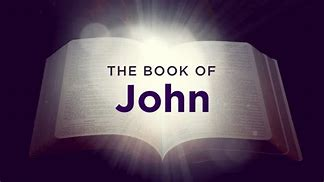Jesus Calls Philip and Nathanael - {Interlinear <Greek>}
1:43 - The {Τῇ<ho>} next day {ἐπαύριον<epaurion>} Jesus {ὁ Ἰησοῦς·<ho Iēsous>} decided {ἠθέλησεν<thelō>} to → go {ἐξελθεῖν<exerchomai> to {εἰς<eis>} Galilee. {τὴν Γαλιλαίαν<ho Galilaia>} • {καὶ <kai>} He → found {εὑρίσκει<heuriskō>} Philip {Φίλιππον<Philippos>} and {καὶ<kai>} said {λέγει<legō>} to → him, {αὐτῷ<autos>} “Follow {ἀκολούθει <akoloutheō>} me.” {μοι.<egō>}
1:44 - Now {δὲ<de>} Philip {ὁ Φίλιππος<ho Philippos>} was {ἦν<eimi>} from {ἀπὸ <apo>} Bethsaida, {Βηθσαϊδά,<Bēthsaidan>} • {ἐκ<ek>} the {τῆς<ho>} city {πόλεως <polis>} of → Andrew {Ἀνδρέου<Andreas>} and {καὶ<kai>} Peter. {Πέτρου.<Petros.>}
1:45 - Philip {Φίλιππος<Philippos>} found {Εὑρίσκει<heuriskō>} Nathanael {τὸν Ναθαναὴλ <ho Nathanaēl>} and {καὶ<kai>} said {λέγει<legō>} to → him, {αὐτῷ· <autos>} “We → have → found {εὑρήκαμεν,<heuriskō>} him → of → whom {ὃν <hos>} Moses {Μωϋσῆς<Mōusēs>} in {ἐν<en>} the {τῷ<ho>} Law {νόμῳ<nomos>} and also {καὶ<kai>} the {οἱ<ho>} prophets {προφῆται,<prophētēs>} wrote, {ἔγραψεν <graphō>} Jesus {Ἰησοῦν<Iēsous>} of {ἀπὸ<apo>} Nazareth, {Ναζαρέτ.<Nazara>} the → son {υἱὸν<huios>} of → Joseph.” {τοῦ 0Ἰωσὴφ <ho Iōsēph>} • τὸν <ho>
1:46 - • {καὶ<kai>} Nathanael {Ναθαναήλ·<Nathanaēl>} said {εἶπεν<legō>} to → him, {αὐτῷ<autos>} “Can {δύναταί<dynamai>} anything {τι<tis>} good {ἀγαθὸν <agathos>} come {εἶναι;<eimi>} out of {ἐκ<ek>} Nazareth?” {Ναζαρὲτ<Nazara>} Philip {Φίλιππος·<Philippos>} said {λέγει<legō>} to → him, {αὐτῷ<autos>} “Come {ἔρχου<erchomai>} and {καὶ<kai>} see.” {ἴδε.<horaō>}
1:47 - Jesus {ὁ Ἰησοῦς<ho Iēsous>} saw {Εἶδεν<horaō>} Nathanael {τὸν Ναθαναὴλ <ho Nathanaēl>} coming {ἐρχόμενον<erchomai>} toward {πρὸς<pros>} him {αὐτὸν <autos>} and {καὶ<kai>} said {λέγει<legō>} of {περὶ<peri>} him, {αὐτοῦ·<autos>} “Behold, {ἴδε<ide>} an → Israelite {Ἰσραηλείτης<Israēleitēs>} indeed, {ἀληθῶς <alēthōs>} in {ἐν<en>} whom {ᾧ<hos>} there → is {ἔστιν.<eimi>} no {οὐκ<ou>} deceit!” {δόλος<dolos>}
1:48 - Nathanael {Ναθαναήλ·<Nathanaēl>} said {λέγει<legō>} to → him, {αὐτῷ<autos>} “How {πόθεν<pothen>} do → you → know {γινώσκεις;<ginōskō>} me?” {με<egō>} Jesus {Ἰησοῦς<Iēsous>} answered {ἀπεκρίθη<apokrinomai>} • {καὶ <kai>} • {εἶπεν <legō>} him, {αὐτῷ·<autos>} “Before {πρὸ<pro>} Philip {Φίλιππον <Philippos>} called {τοῦ φωνῆσαι <ho phōneō>} you, {σε <sy>} when → you → were {ὄντα<eimi>} under {ὑπὸ<hypo>} the {τὴν<ho>} fig {συκῆν<sykē>} tree, ← I → saw {εἶδόν<horaō>} you.” {σε.<sy>}
1:49 - Nathanael {Ναθαναήλ·<Nathanaēl>} answered {ἀπεκρίθη<apokrinomai>} him, {αὐτῷ<autos>} “Rabbi, {ῥαββεί,<rhabbei>} you {σὺ<sy>} are {εἶ <eimi>} the {ὁ<ho>} Son {υἱὸς<huios>} of → God! {τοῦ θεοῦ,<ho theos>} You {σὺ<sy>} are {εἶ <eimi>} the → King {βασιλεὺς<basileus>} of → Israel!” {τοῦ Ἰσραήλ.<ho Israēl>}
1:50 - Jesus {Ἰησοῦς<Iēsous>} answered {Ἀπεκρίθη<apokrinomai>} • {καὶ<kai>} • {εἶπεν {legō>} him, {αὐτῷ·<autos>} “Because {ὅτι<hoti>} I → said {εἶπόν<legō>} to → you, {σοι sy‘ ὅτι <hoti>} I → saw {εἶδόν<horaō>} you {σε<sy>} under {ὑποκάτω <hypokatō>} the {τῆς <ho>} fig {συκῆς,<sykē>} tree,’ ← do → you → believe? {πιστεύεις;<pisteuō>} You → will → see {ὄψῃ.<horaō>} greater {μείζω<meizōn>} things ← than → these.” {τούτων<houtos>}
1:51 - And {καὶ<kai>} he → said {λέγει<legō>} to → him, {αὐτῷ·<autos>} “Truly, {ἀμὴν<amēn>} truly, {ἀμὴν<amēn>} I → say {λέγω<legō>} to → you, {ὑμῖν,<sy>} you → will → see {ὄψεσθε<horaō>} heaven {τὸν οὐρανὸν<ho ouranos>} opened, {ἀνεῳγότα<anoigō>} and {καὶ<kai} the {τοὺς<ho>} angels {ἀγγέλους<angelos>} of → God {τοῦ θεοῦ<ho theos>} ascending {ἀναβαίνοντας<anabainō>} and {καὶ<kai>} descending {καταβαίνοντας<katabainō>} on {ἐπὶ<epi>} the {τὸν<ho>} Son {υἱὸν<huios>} of → Man. {”τοῦ ἀνθρώπου.<ho anthrōpos>}

Like the other Gospel writers, John shows us the paradox of service in Jesus’ kingdom. As his first disciples and trusted servants, Jesus chooses unlikely men, mostly fishermen, all of whom will fail him at one time or another. God chooses the weak in order to exalt his name (cf. 1 Cor. 1:26–27). This is good news for all of us who recognize our own weaknesses and sin. Our failings do not disqualify us from Christ’s kingdom. Spiritual heroism is not what qualifies us for heaven. There is only one hero in the gospel story: Jesus himself.
The most important qualification for Jesus’ disciples is to know his name—that is, to be absolutely clear in heart and mind about who he is and what he has done. Thus, the first disciples were given an immersion course in Christology. In the span of 16 verses, Jesus is identified as “the Lamb of God,” “the Messiah,” “the Son of God,” “the King of Israel,” and “Son of Man”—all messianic names that take on a fuller meaning throughout John’s Gospel.
At the heart of all these names is the truth that Jesus has come to save—to be the ladder from heaven to earth of which Jacob dreamed (Gen. 28:12) and to which Jesus alludes in John 1:51. But we do not climb our way up to God; God in Christ came down to us.
Outline:
Prologue: The Incarnate Word (1:1–18)
Signs of the Messiah, with Teaching about Life in Him (1:19–12:50)
The Farewell Teaching and the Passion Narrative (13:1–20:31)
Epilogue: The Roles of Peter and of the Disciple Whom Jesus Loved (21:1–25)
References:
All contents are reposted from ESV.org.
“Scripture quotations are from The ESV® Bible (The Holy Bible, English Standard Version®), copyright © 2001 by Crossway, a publishing ministry of Good News Publishers. Used by permission.
All rights reserved.”
Comments